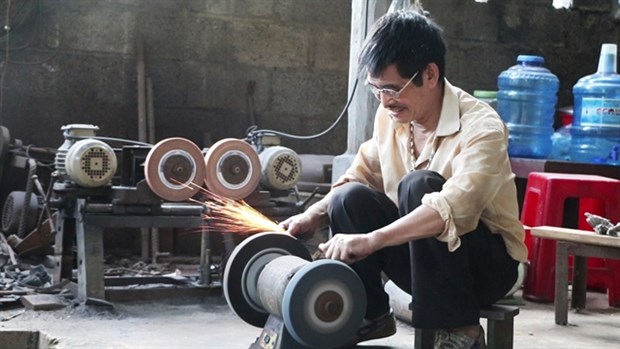Knife village retains traditional craft
That noise is the sound of thousands of knives, of all shapes and sizes, being made each year by about 350 blacksmiths of the Nung ethnic minority.
During the day the village is filled with the sounds of workers beating and hammering steel as they forge knives using traditional techniques and recycled materials.
“We have been doing this job since my grandparents’ time, and I don’t remember exactly when it started,” said 58-year-old Long Anh Chien.
 |
| Long Anh Chien, 58, sharpens a knife at his workshop (Photo: VNA) |
“We get steel from the shock absorbers of used cars to make the knives,” he added.
Legend has it that the craft was first started in the village about 200 years ago.
Nowadays some 200 households in Phuc Sen earn a living forging knives.
An experienced blacksmith can make 4-5 knives a day, a less experienced one 3-4, Chien said.
Chien started learning to make knives when he was 15. When he grew up he left the village to work elsewhere, but returned and took up the traditional craft in 1998.
“I’ve done a lot of jobs but they were all unstable. This job does not pay as much as others, but it gives me something to do every day and a stable income,” he said.
“There are 12 workers in my workshop, divided into four groups of three. Each group is responsible for producing a specific type of product. Knives, hammers, hoes, and rakes. Tools that serve agricultural production and domestic use.
“A senior blacksmith earns 15-20 million VND (650-860 USD) a month. Those with less experience get 9-15 million VND per month.

